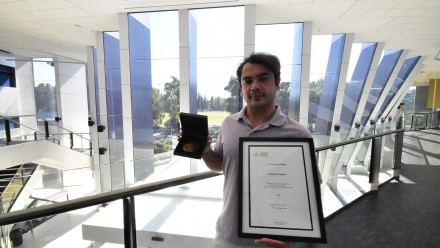Using single-cell genomics, mathematical and computational modelling to examine host-parasite interactions in experimental malaria
Associate Professor Ashraful Haque, QIMR Berghofer Medical Research Institute, Brisbane, Australia
This seminar will explore host-parasite interactions during blood-stage Plasmodium infection in mice, both from the parasite's and the host's perspective. Disease severity in malaria often correlates with an estimate of the number of parasites in the body. Thus reducing parasite load is a prime method for ameliorating or preventing disease. Using in vivo and mathematical modelling, we explored the role of host-mediated clearance of parasitised red blood cells in control of infection, and found this phenomenon to play only a minor role in comparison with effects on parasite maturation and replication. Secondly, given that CD4+ T cells are crucial for antibody-mediated immunity to malaria, we have used single-cell transcriptomics and computational modelling to examine how naive T cells "choose" between T helper fates in a mouse model of infection. We found that CD4+ T cells passed through an intermediate, uncommitted state which was open to T-cell extrinsic, chemokine signals that encouraged either a Th1 or Tfh fate.
Ashraful Haque completed his BA(Hons) in Natural Sciences at Cambridge University, UK (1997), followed by a PhD (2002) in microbial biochemistry with Prof. Gordon Dougan FRS at Imperial College, London. After a first post-doctoral research position at the London School of Hygiene & Tropical Medicine, where he examined host immune responses during bacterial infection, he moved to QIMR Berghofer in Brisbane, Australia, in 2006, to study T cell responses during parasitic infection. He has been funded by a Career Development Fellowship and Project Grants from the Australian National Health & Medical Research Council (NHMRC) and the Australian Research Council (ARC) to examine host immune responses during malaria.












